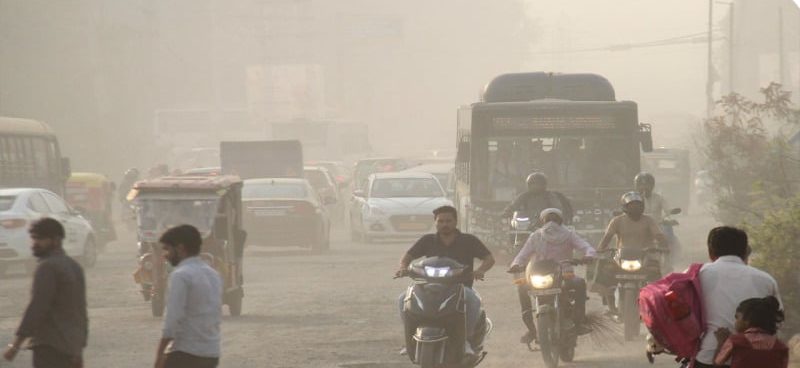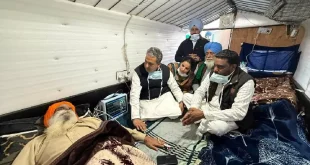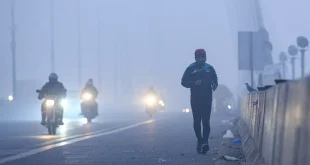
An increase in pollution levels was seen after Diwali in many states of the country including the capital Delhi. Along with this, the onset of winter and cold air, dense air around the city, road dust and vehicular pollution and stubble burning also contribute to deteriorating air quality at this time every year. This year the air quality before and after Diwali has been the worst compared to the last two years.
The figure crossed 500 on Sunday, two days after Diwali in Delhi.
This figure has crossed 500 on Sunday, two days after Diwali in Delhi. By 5 am in the morning the level of air pollution in the capital had reached 'hazardous' category. Which is harmful for the health of the people living in Delhi and its surrounding areas. PM 2.5 levels in the capital reached its peak at midnight on Diwali this year, 13 per cent higher than the levels recorded on the same day last year.
This is extremely dangerous for people with weak immune systems
Delhi's AQI was recorded at 316 on Saturday. Such bad air is extremely dangerous for people with weak immune systems. While AQI was recorded at 330 in Ghaziabad, 339 in Ludhiana and 368 in Amritsar. These areas are most affected by stubble burning. At the same time, AQI was recorded at 277 in Chandigarh, 337 in Jind and 333 in Sriganganagar.
Air pollution situation in Delhi
According to a report by the Center for Science and Environment (CSE), nitrogen dioxide (NO2) levels were higher on Diwali night this year, indicating more traffic. According to the report, unlike previous years, PM 2.5 levels increased rapidly in Delhi on Diwali night and decreased the next day.
By midnight on October 31, PM 2.5 levels had reached a high of 603 grams per cubic metre.
The report said that by midnight on October 31, PM 2.5 levels had reached a high of 603 grams per cubic metre, which is 13 per cent higher than on Diwali nights of 2022 and 2023. Meanwhile, according to the Delhi Pollution Control Committee (DPCC) report, PM 2.5 levels have reduced by four per cent compared to last year's Diwali.
 look news india
look news india

